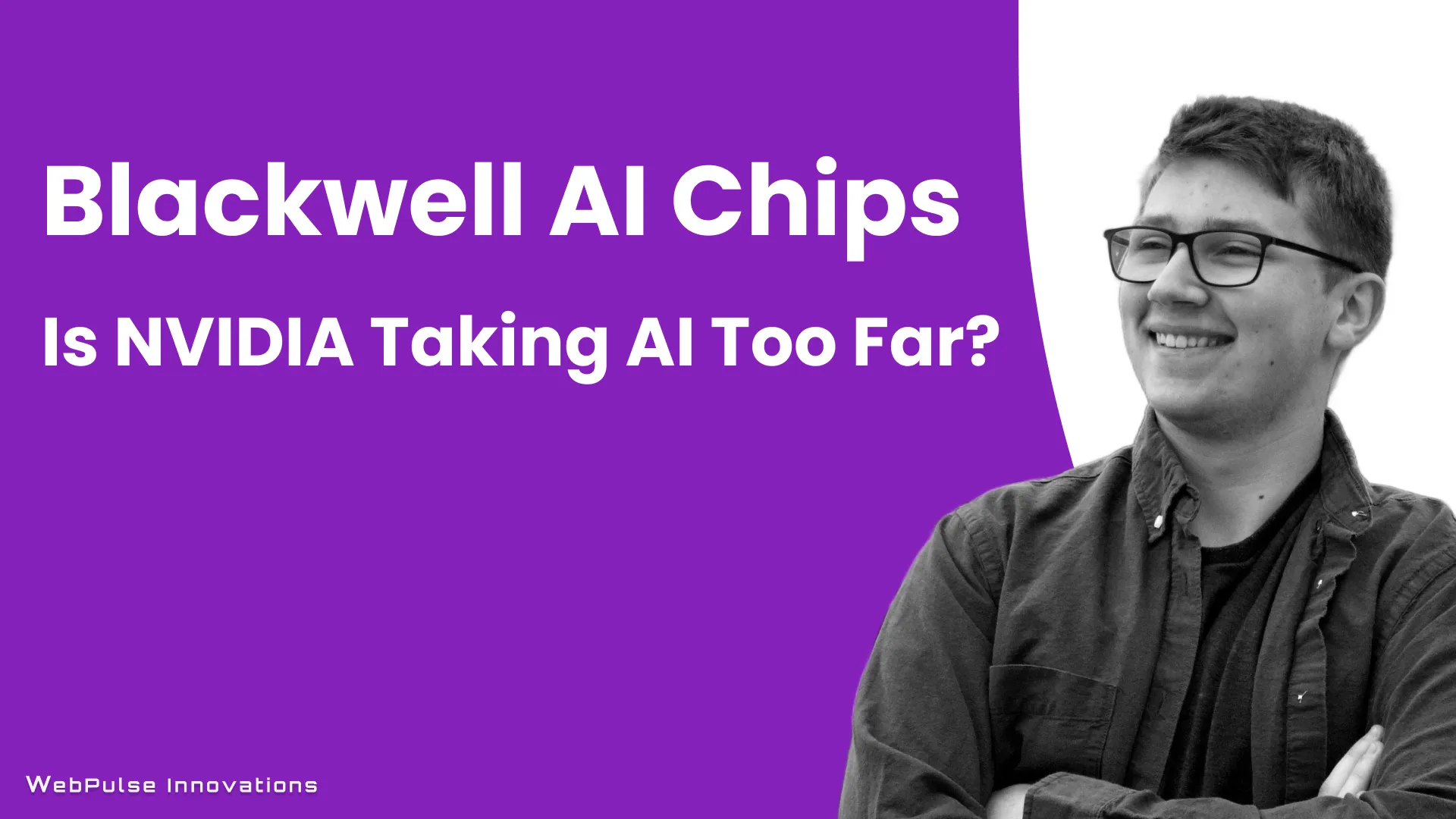Ushering in a New Era of Artificial Intelligence
Nvidia has once again set a new benchmark for artificial intelligence with the unveiling of its next-generation Blackwell AI chip lineup. Designed to redefine what AI hardware can achieve, these chips are expected to deliver unprecedented capabilities in performance, scalability, and efficiency. But while Nvidia continues to lead the charge in advancing AI technology, questions remain: Is AI taking over too much too soon? Has AI gone too far in disrupting industries and society?
This article explores the technological innovations behind Nvidia’s Blackwell chips, the industries they will transform, and the implications of these advancements in the broader conversation around artificial intelligence.
Nvidia Blackwell: A Leap Forward in AI Hardware
What Is Nvidia’s Blackwell AI Chip?
The Nvidia Blackwell architecture represents a major evolution in AI hardware, building upon the success of its Ampere and Hopper predecessors. It is designed for high-performance computing, particularly in training and deploying advanced AI models such as large language models (LLMs), generative AI systems, and real-time analytics platforms.
Key specifications include:
- 208 billion transistors: Enabling faster and more energy-efficient computations.
- TSMC 4N Process: Cutting-edge manufacturing technology ensures a compact and powerful design.
- Advanced NVLink Interconnect: With up to 10 terabytes per second (TB/s) of chip-to-chip interconnect bandwidth, Blackwell GPUs can act as a unified single system, ideal for handling massive datasets and training next-gen AI models.
Top Features Driving AI Forward
Unmatched AI Performance
Blackwell chips boast up to 20 petaflops of AI computing power on a single GPU. This enables faster training of models used in applications like natural language processing (NLP), image recognition, and autonomous systems.
Energy Efficiency
Sustainability in AI is a growing concern. Nvidia addresses this by introducing TensorRT-LLM Compiler and advanced Tensor Cores in the Blackwell lineup. These innovations reduce large language model inference costs and energy consumption by up to 25 times compared to previous architectures.
Scalability for Giant AI Models
The GB200 NVL72, featuring 72 GPUs with liquid cooling and 13.5TB of shared memory, is designed to scale linearly. This scalability allows for the training of enormous AI models, positioning Nvidia as a leader in next-gen AI development.
Applications Across Key Sectors: AI Meets Real-World Challenges
Healthcare: AI Diagnostics and Personalised Medicine
Nvidia’s Blackwell chips will empower healthcare providers with real-time data processing capabilities. From AI-driven diagnostic tools that identify diseases earlier to personalised medicine platforms, these advancements are poised to save lives and improve healthcare outcomes.
Finance: Predictive Analytics and Fraud Detection
The finance industry can leverage Blackwell chips for high-speed predictive analytics and fraud detection. Advanced machine learning models running on Blackwell can predict market trends and anomalies in real time, optimising trading strategies and risk management.
Automotive: Driving the Future of Autonomous Vehicles
With improved performance and data processing speeds, Blackwell GPUs are instrumental in advancing autonomous driving systems. By enabling vehicles to make faster, more accurate decisions, Nvidia continues to lead in shaping the future of transportation.
Entertainment: Generative AI for Creative Content
From creating AI-generated imagery indistinguishable from real-life photos to enabling interactive virtual environments, Blackwell chips are set to revolutionise the entertainment and gaming industries.
AI vs Quantum Computing: The Next Frontier
In the race for technological supremacy, AI and quantum computing are often compared. While Blackwell chips push the boundaries of artificial intelligence, quantum computing leverages quantum bits (qubits) to solve problems that are unsolvable by classical systems.
AI vs Quantum Computing: Complementary Technologies?
AI excels at pattern recognition, decision-making, and automating processes. In contrast, quantum computing shines in areas like cryptography, materials science, and simulations of complex systems. Nvidia’s advancements in AI hardware could eventually intersect with quantum computing to tackle challenges in industries such as pharmaceuticals, energy, and climate modelling.
Ethical Questions: Has AI Gone Too Far?
AI Danger: Risks of Unchecked Advancement
The sheer power of Nvidia’s Blackwell chips raises concerns about AI’s potential misuse. Autonomous decision-making systems without human oversight, for example, could pose risks in healthcare, military, and even consumer applications.
AI or People: Striking a Balance
As AI becomes increasingly capable, industries must grapple with balancing the benefits of automation with the need for human involvement. Will AI ultimately replace people in critical roles, or can it complement human expertise?
AI Taking Over: The Economic Impact
The displacement of human workers by AI systems remains a significant concern. With Blackwell chips enabling highly efficient automation, industries must plan for the social and economic consequences of reduced demand for human labour.
A Turning Point for Artificial Intelligence
Nvidia’s Blackwell AI chips are undeniably groundbreaking, offering unmatched performance, efficiency, and scalability. These chips are poised to revolutionise industries, from healthcare to finance, while shaping the future of AI technology.
However, the rapid pace of AI development prompts important questions. Has AI gone too far? Can AI and people coexist without significant social disruption? As Nvidia pushes the boundaries of artificial intelligence, society must ensure that ethical considerations and responsible AI deployment remain at the forefront.
The Blackwell era represents a defining moment for artificial intelligence. Whether this marks a quantum leap forward or a step into uncharted territory will depend on how these technologies are used and regulated.
